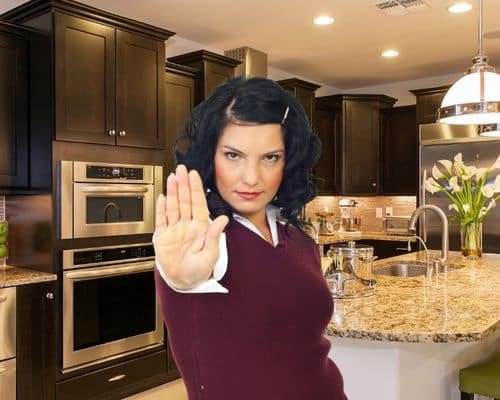Reviewed by Karis A. Williams, MSMHC, LPC
If you are here reading this article, you’ve likely known there was something wrong with your relationship pretty much from the beginning. Once you realized you were in a toxic relationship, you probably would have started binge reading articles, watching videos, and buying and reading books to tell you everything you needed to know about toxic relationships. But the one pressing question now? Can a toxic relationship be saved?
You may love the person in a toxic relationship very much. You may feel like you want to save the relationship, no matter what it takes. Surely, you can get through to the other person and the relationship can be repaired and restored. But, can a toxic relationship actually be saved? It can if the toxicity is not too high on the scale. If the toxic person is willing to work through their issues and the victim of the toxicity is willing to forgive and work toward a healthier relationship, then yes, a toxic relationship can absolutely be saved. But if you find that healing and growth is not a possibility, you should NOT stay in a toxic relationship, for the sake of your own health.
Let’s take a deeper look at how and when a toxic relationship can be saved and the issues surrounding it.
Table of Contents
Saving a Toxic Relationship When Both Partners are Willing to Work on It
When both partners are willing to work on a toxic relationship, the results can be so incredibly rewarding. Being able to say you have healed an important relationship is one of the most satisfying experiences in life. And once you have done that, the relationship going forward is often better than ever before, not just because of the healing, but because you both realize the hard work it took to get there.
Here are some of the things that can help heal a toxic relationship between two partners that work hard to set things right.
Spend More Time Intentionally Listening to Each Other
Often, a lack of communication is a problem even in the most normal of relationships. It can exacerbate a difficult relationship even more so.
Taking time to listen well and actually understand your partner will go such a long way in healing. It will show them that you value what they say and think. And it will help you to know how better to relate to them if they are communicating with them about their wants, needs, and dreams.
You are both going to need to listen and communicate well anyway to heal your damaged relationship. Unless you really get down deep into the issues, you won’t be able to fully heal and you will both be plagued with doubts, fear, uncertainty and mistrust.
When you do begin to truly listen to each other, however, you will start to be able to say and do things that grow the relationship stronger. You will be able to operate more intuitively in the relationship. And you will rest, knowing that things are going well.

You Can Heal From a Toxic Relationship With Honesty
You may think that you can continue to hide things about the relationship that may be hurtful for both of you to admit to the other person. But the opposite is really true. While honesty is going to be a difficult and painful road for both of you, in the long run you will both be so much stronger for it.
If you can admit to and work through very difficult things that you bring up in a display of honesty to the other person, you will both know that you can trust each other completely going forward. Very few relationships share this kind of honesty and trust.
That does not mean you can use blatant honesty to hurt the other person. That does not heal anything or build trust. It would only tear down the other person and make the relationship even more toxic.
So, while honesty is absolutely critical to healing your relationship, it needs to be honesty that is compassionate, kind, and also straightforward, all at the same time.
Healing a Toxic Relationship Takes a Huge Amount of Self-reflection
This may be the toughest part of trying to heal a toxic relationship, for both parties actually. The person with the toxic behavior has to do the difficult work of self reflecting on what they have done that is wrong and how they need to rectify it and move forward in healthy ways. The receiver of the toxic behavior will need to self reflect on what it was that they felt harmed them and communicate it to the other person. Then they need to work with their partner on how to heal those issues and move on in healthy ways with the new methods of relating.
Self-reflection is not going to stop with the healing of your relationship. It will be a job for both of you to do for the rest of your relationship, both with your partner and literally with everyone you meet. It is a lifelong skill that you will need for the rest of your life. So, learning it now will be beneficial to you in so many ways.
To Heal a Toxic Relationship, You Will Need Professional Help
Toxic relationships are very tough. You got there in the first place because neither one of you were emotionally healthy enough to avoid the pitfalls that others would recognize and avoid or work on to become healthy.
Because of the difficulty involved in healing a toxic relationship, most couples will need a professional counselor. Finding a counselor who has experience in narcissism, Cluster B personality disorders, and other toxic behaviors will be your best bet.
Do not try to work with a counselor that has not had direct experience in these issues. And also, if you are involved in a church or similar group that offers counseling to members, do not take them up on it, at least not exclusively. You can certainly have your church counselors work with your professional counselors as a team. That would help keep everyone on the same page. But to make them your primary counselors is above their pay grade and could be incredibly harmful to everyone in the long run.
How to Know if a Toxic Relationship is Worth Saving
You may try to work thing out with your toxic partner. It can take a long time. But what happens when you realize that true healing and a healthier relationship is never going to happen?
Often, a toxic person will try to convince you with their words that they are changing. And, of course, you want to believe that. You have invested so much into the relationship. The pain of leaving just seems like to much to leave behind. Unfortunately, sometimes that is the only option.
Here are some key thoughts to help you figure out if your toxic relationship is worth saving.
A Toxic Relationship is Worth Saving if You Can See Consistent Progress
There will be ups and downs in the process of healing a toxic relationship. As long as there are more ups than downs, you are in a good spot.
Evaluate your situation frequently, and plan to discuss where the two of you have been and where you are headed. Revisit goals. But most importantly, make sure that you are headed in the right direction more often than not.
If you stall in your progress, be proactive in getting back on the right track. Your tendency may be to let things slide. But the more you do that, the more backwards you will slide. And you will find yourself right back in the thick of the toxic relationship.
Just know that if you get to the point that progress is not being made in the way you need it to be, you must understand that not all toxic relationships are salvageable. Do not feel guilty if this turns out to be the case. Nearly all abusive people can say the words you need to hear. That is how they sucked you in in the first place. Don’t let them use that to keep you trapped in the toxic relationship. If the actions don’t match the words, the relationship is not where it needs to be to continue.
A Toxic Relationship is Worth Saving if You Can Successfully Set Boundaries
If you can sit down with your partner and set boundaries, you have already made good progress. If your partner can stick to those boundaries and respect them, you are well on your way to a healthier relationship!
You may not know how to set boundaries or even what boundaries need to be set. Of course, that depends on your relationship circumstances and the nature of your issues. I had no idea what boundaries to set. I actually didn’t even believe that I was “allowed” to set boundaries in my marriage. I was convinced that my husband should have total access to me at all times for whatever he wanted. And he took full advantage of that.

It wasn’t until a year into professional counseling that we started seriously talking about boundaries. My counselor recommended the book, Boundaries, by Henry Cloud and John Townsend. It opened up a whole new world to me. I learned what boundaries are appropriate, that they are actually necessary in ALL relationships, but especially intimate relationships for the sake of keeping both partners safe and healthy. If you have not read this book yet and you are dealing with a toxic relationship, you need it now!!! Click the book below to learn more about it.
A Toxic Relationship is Worth Saving if You Can See Your Part in the Toxicity
Let me make it clear right away that you are not responsible for your partner’s toxic behavior toward you. But you are responsible for any toxic behavior you exhibited toward them and for ignoring red flags that would keep you from being treated in toxic ways.
You did not just randomly end up in a toxic relationship. You first of all allowed them to treat you that way. And you possibly returned the toxic behavior when you were treated badly. Over time, the toxicity in your relationship hit the boiling point. And then one or both of you realized that you couldn’t continue the way it had turned out.
You may have simply allowed yourself to become a doormat to your partner and they realized they could continue to treat you however they wanted to without any consequences. And you would be responsible for allowing someone to do that to you.
Regardless of how you got to where you are in your relationship, it is important to be able to identify your own unhealthy behaviors. This is true whether or not you stay in this relationship. You will never not be in relationship with someone unless you become a hermit in the woods or somewhere else that there are no people. Which will never be the majority of us. The point is that you will always need to exercise emotionally healthy behaviors in your relationships in order for them to remain healthy.
If you have not learned healthy habits after emerging from your toxic relationship, then all other future relationships will have the same issues. It is critical to your own health to learn your part and change it so you can have a healthy and relationally good future!
If you have worked through all of these issues and honestly (with yourself) weighed out whether the relationship is still worth staying in, then you should be able to make a decision that you can be at peace with.

Where to Find Healing When Working Through a Toxic Relationship
I already mentioned that you will need a professional counselor to help you find healing when trying to determine if a toxic relationship is worth saving. But there are so many other places that you can find healing. Here are some of them.
Local Support Group for Toxic Relationships
At the time I wrote this, Meetup.com has a list of 18 support groups with 6,909 members dealing with all different kinds of toxic relationships. Some examples are narcissism, borderline, manipulation, and psychopathic issues.
Narcissistabusesupport.com has a list of support groups for victims of narcissism across all 50 states and several other countries. It is an incredibly extensive support resource.
While both of these are for local, in-person support groups, there are countless groups that meet online on a regular basis. Many different websites feature them. If you spend any time reading articles on narcissism and other types of abuse, I am sure you will run into opportunities to join these groups through Facebook and many other avenues.

Websites About Narcissism Can Help You Find Healing
You found this website, Navigating Religious Narcissism! I’m glad you did and I hope the articles and resources here have been of great help to you! Although there are a lot of articles that deal specifically with religious abuse, whether it is from a pastor, teacher, or religious husband or wife, the majority of articles that deal with narcissism are totally relevant to the garden variety narcissistic abuse. And hopefully most of them can help you determine if your toxic relationship is worth saving.
I know when I first started finding things online, I realized for the first time that the abuse I had suffered my whole life was not really that unusual. There are narcissists abusing people all over the world and throughout history. While it’s not a club I would encourage people to join for fun, it is certainly a fellowship of like-minded people to find encouragement and support when they realize they are not alone and they are okay!
If you find yourself binge-reading the articles you find online, don’t worry! We all do that at first when we emerge from the fog and realize that there are so many others like us!
Friends Can Help You Find Healing From a Toxic Relationship
While you certainly don’t want to tell all of your friends about your toxic relationship issues, or even a large number of them, you will want to have a few (2 or 3) friends that you can speak to candidly. If they are knowledgeable about toxic relationships, you are that much better off. And often, their view from the outside is more objective and can help you determine more accurately if your toxic relationship can or should be saved.
I bet you have a couple of friends that have been through toxic relationships and can be a wealth of knowledge and encouragement to you. Once my pastor understood the issues I was facing in my home, he suggested I talk to a couple of friends that I had known in the church for 25 years. One had been separated from her husband for 10 years by that time. Once she got over the shock of what was going on in our house (my husband had convinced everyone at church that he was the greatest Christian ever–the perfect cover for a diagnosed narcissist), we quickly found common ground in our experiences.
My pastor’s wife was another person I was able to confide in. She kept things private and was a great encouragement while also being able to share things with my pastor that I was not comfortable sharing myself at the time. They had my permission to speak freely to each other unless I expressly asked them to keep something to themselves, which was almost never.
Finally, I confided in a couple other close friends in the church that I had known since I was in my early 20’s. At that time I was in my late 40’s/early 50’s. It was life-changing for me to have someone to talk to after staying silent for so many years, thinking nobody would believe me over my super-charming husband.
When it’s Time to Leave a Toxic Relationship
You may have spent a significant time working on your toxic relationship only to realize that it just isn’t working and you are not headed in the right direction. In fact, things could have headed down the wrong direction. You may just realize that your toxic relationship is not worth saving.
If that is your case, know that I feel your heartache. It is such a painful moment when you finally realize there is nothing left that you can do. You have tried and invested everything. But also know that you can hold your head high as you determine that you are ready to find your own emotional health and leave the things that have kept you trapped for so long.
Let’s take a look at a few criteria that could cause you to feel this way and realize that the toxic relationship is not worth saving.
A Toxic Relationship is not Worth Saving if Boundaries are not Respected
You have researched and agreed to set boundaries in order to determine if your toxic relationship can be saved. But after some time, you realize that those boundaries are not being respected. They are being ignored or even outright defied. That is a clear indication that the toxic relationship is not worth saving and it’s probably time to leave.
That doesn’t mean that you set boundaries and the first time your partner does not respect them that you are out of there. It probably took some time for those habits to form and become habit. It will take some time to walk them back into healthy habits.
Give your partner grace for as long as they are working with you and sincerely trying. But, if over time that does not continue, you will know it. And you will know when it is time to leave. If you have all of the support mentioned above, you, as well as your support network, will know when the time is right.
It is important for you at this stage to not beat yourself up because things didn’t work out in the end after trying so hard. You can only do you. You can’t force the world to react to you in the way you want them to.
A Toxic Relationship is not Worth Saving if Your Abuser’s Behavior is not the Same Behind Closed Doors
Understand that even if your partner is saying all the right things and doing all the right things in public or the counselor’s office, but questionable things are happening behind closed doors, you are being gaslit!
If they say the things you want to hear, but their actions don’t match, then you know you still have your work cut out for you. Or that it is time to move on and heal on your own. They could be all but perfect in all the places they go with you. But if that is not the case when it is just the two of you alone, or just your family at home, then you can know with certainty that what they are doing to you is very intentional. They are abusing you.
It cannot be considered unintentional and they cannot claim ignorance if you call them out for behavior that they are careful not to show in public and they only do it when no one else is looking. I know that in my case this happened for years. And I continually overlooked it, convincing myself that he would never do that on purpose or he didn’t realize what he was doing. (For a list of all the excuses they use, click here.)
Don’t let yourself fall for thee excuses. Your partner is counting on it because you extended grace for so long. No more. Make it clear that they cannot say those things to you anymore. But I will warn you, when I told my ex he couldn’t say those abusive things to me anymore, he would just change the wording and claim that he wasn’t saying what I told him not to. Apparently, he didn’t “realize” that using different words to say the same thing was saying the same thing. (Insert shoulder shrug here.)
Why Toxic Relationships Tend to Last so Long
There are a few reasons why toxic relationships tend to last so long, even though they are unhealthy. First, they are experts at finding empathic and codependent people. That allows them to continue to abuse, knowing that their behavior will be excused and overlooked in order to show love and grace to them. Their victims can do that for years, thinking that eventually the toxic person will finally come to their senses and return the love.
Unfortunately, when you extend grace in such a generous way to a toxic person, it only gives them license to abuse you longer and to a greater degree. While all relationships need grace and empathy, you will need to figure out when it is important to do that and when it is necessary to put a stop to abuse of empathy.
A second reason that toxic relationships tend to last so long is that often the victim is fearful of leaving. They have either been threatened, directly or indirectly. Or they just know if they try to cross the toxic partner, they will “pay for it.” I knew that was the case for me and it kept me silent for over 2o years. Even though he never once threatened me with words. I knew that my life would be miserable if I was not the “obedient, godly” wife.
One more reason why toxic relationships tend to last so long is because the victim feels like they have invested too much. They feel like to leave would be worse than to just suck it up and live with it because they fear they would be losing more than they can stand to think about. Additionally, they rationalize that maybe the abuse isn’t so bad and they are blowing it out of proportion. Even though I have been far removed from it, I still have those feelings of things may not have been so bad. And then someone deeply involved in the process reminds me of what really happened and I realize my mind still plays tricks on me to make things seem okay.
It is exactly this sentiment that causes victims to stay in toxic and abusive relationships far longer than they ought to.
Conclusion
We have covered a lot of territory here, but I hope that it has helped to make it more clear to you whether or not your toxic relationship can be saved. Are you starting to see the toxicity in your relationship? Maybe you are finding that it is low on the scale of toxic behaviors, so you are realizing it is something you can work through. Or, maybe you are realizing that the toxic behavior has gotten out of control and you need to get out.
Speaking of which, if you feel even the remotest bit unsafe, if you think you are in any danger in your relationship, contact the National Domestic Violence Hotline at 1-800-799-SAFE (7233). Or you can visit online at thehotline.org.
I would love to hear your story! Feel free to leave a comment below, or if you prefer to keep things private, contact me here. I reply to all of my emails personally!
Blessings and hugs,
If you found this article valuable, I think you will also find the following articles valuable:
Guarding Against the Narcissist’s Divorce Tactics
Scriptural Ways to Deal With a Narcissistic Husband
What is the Narcissist Divorce Rate?
How Many Times Does a Narcissist Marry?
Narcissists and Marriage: The Complete Picture
How Does a Narcissist Stay Married for so Long?
Does Narcissism Worsen With Age?
Does a Narcissist Realize What They’ve Lost?
Can a Narcissist be a Good Father?
Can a Narcissist be a Good Mother?
Will a Narcissist Hurt Their Child?
Can Narcissists be Good Parents?
Can Narcissists Love Their Children?
How Can You Tell if Someone is a Religious Narcissist?
Can Two Narcissists be in Relationship With Each Other?
Understanding the Tactics of a Religious Narcissistic Father
Dealing With the Trauma of a Religious Narcissistic Mother
When Narcissism Becomes Pathological
What to do When Your Narcissist Threatens You
The Bible Used as a Weapon Against You: You Can Overcome!
What Does the Bible Say About Abusive Husbands?
The Link Between Spiritual Abuse and Narcissism
Why Narcissists Want to Appear Godly
What Healing From a Narcissist Looks Like
Why Narcissists Love Going to Church
How Religious Narcissists Think
Narcissistic Behavior: What to Look Out For
Praying for Your Narcissistic Husband
Are Spiritual Narcissists Overt or Covert?
Religious Trauma Syndrome: How to Preserve Your Spiritual Journey
How to Navigate Religious Narcissistic Parents
What Happens to the Soul of a Narcissist?
How to Heal From a Spiritual Narcissist
Can You Maintain a Relationship With a Spiritual Narcissist?
Can Narcissists Have a Spiritual Awakening?
How Will God Judge a Narcissist?
When the Church Says to Move Back in With Your Narcissist
What Can we Say to a Christian Friend Who’s Divorcing?
12 Ways the Church Helps Narcissists Abuse Their Victims
When Your Church Believes the Narcissist’s Lies
23 Reasons Why Narcissists are Drawn to the Church
What Does the Spiritual Narcissist do When You try to Leave?
When the Church Doesn’t Recognize Narcissistic Abuse
Will the Church Support Divorcing a Narcissist?
Are Narcissists Demon Possessed?
What Does the Bible say About Narcissism?
Can a Narcissist be a Christian?
- How to Choose the Best Attorney When Divorcing a Narcissist - March 23, 2024
- Why Won’t God Heal my Narcissist? - February 28, 2024
- How Narcissists Use Religion to Control and Manipulate You - December 26, 2023





